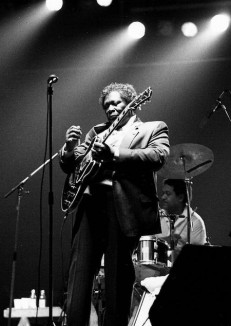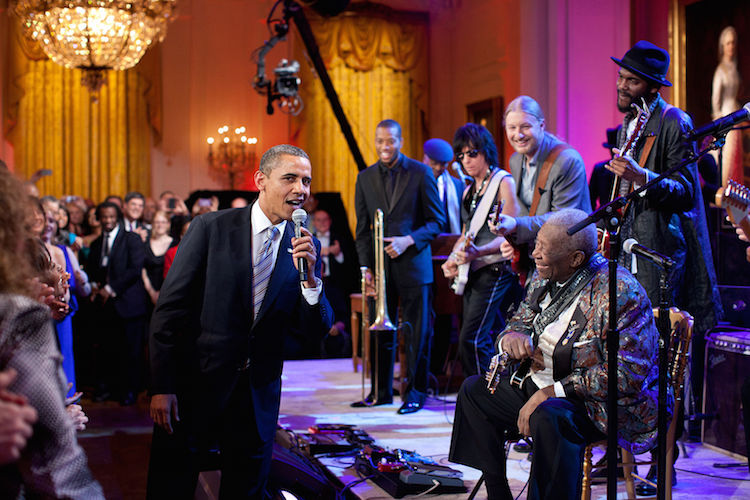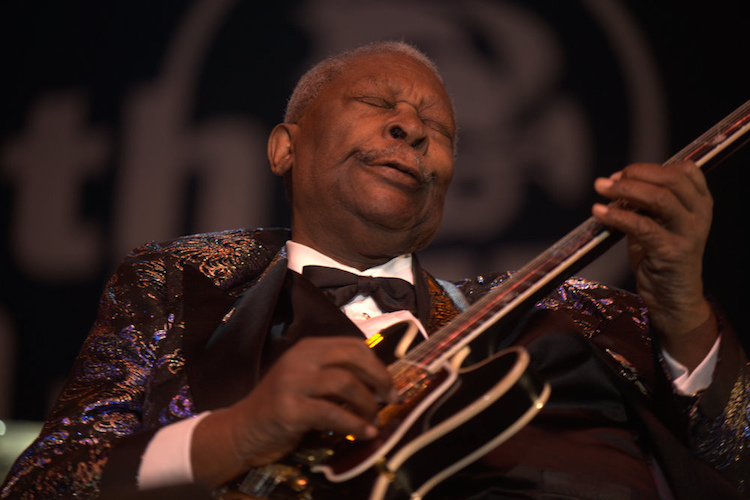Born a sharecropper named Riley B. King in Itta Bena, Mississippi, B.B. King went on to become a millionaire, honored by presidents, who influenced generations of musicians worldwide as the king of blues.
After his parents died, King tried his hand at farming when he was just 14-years-old, but found he could make more money singing in churches and on radio stations around Mississippi, Arkansas and Tennessee.

He picked up the nickname “Beale Street Blues Boy” King while working as a disc jockey and singer for a Memphis, Tennessee radio station, which he shortened to “Blues Boy” and, eventually, just B.B. King.
By the 1950s, King had landed a record contract, put together a band and began touring the country, performing 342 one-night stands in a single year.
King loved to tell audiences one particular story of the time he played in a roadhouse in Twist, Arkansas in the early 1950s. That night, two men had gotten into an fight, knocked over a kerosene stove, and set the place on fire. King ran outside before realizing he’d left his $30 guitar behind — and had to run back inside to save it.
The men were fighting over a woman named “Lucille.” Every one of King’s guitars since were named Lucille.
During the course of his career, King churned out more than 50 albums, won 15 Grammys, was inducted into the Rock and Roll Hall of Fame, and became the first bluesman to receive the Kennedy Center Honors Lifetime Achievement Award.

President George W. Bush presented him with the Presidential Medal of Freedom — America’s highest civilian honor — in 2006. Six years later, President Barack Obama hosted King and other bluesmen for a performance showcasing the uniquely American music style at the White House (photo above).
King passed away at his home in Las Vegas Thursday from diabetes.
(WATCH more in the CNN video below or READ more at the New York Times)
Photo credit: (top) Tom Beetz, CC
Share this tribute with your friends and followers…




















